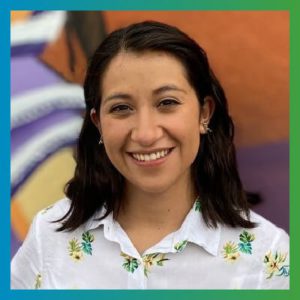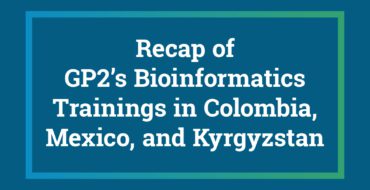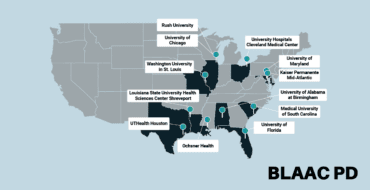GP2 Awards New Trainees

Professional development helps power the GP2 initiative. The demand for Parkinson’s disease (PD) genetics specialists is only growing, and GP2 provides opportunities and training to PD researchers from around the world to address this need. Their work and discoveries will form the basis for accelerating the path to a cure.
Get to know some of the next generation of PD researchers supported by GP2.
 Paula Roxana Reyes Pérez
Paula Roxana Reyes Pérez
Universidad Nacional Autonoma de Mexico | Mexico
PhD Candidate, addressing genetic and epidemiological characterization of anxiety patterns in Parkinson’s patients in the Mexican population.
“As a Biotech student, I found the biological and genetic aspects of neurodegenerative disorders fascinating and I am committed to studying Parkinson side by side with the amazing community that Latin patients, care partners and institutions have built. The Latin PD community has a voice and I am proud to take a place in it to listen and learn as much as I can.”
 Benjamín Matías Pizarro Galleguillos
Benjamín Matías Pizarro Galleguillos
Universidad de Chile | Chile
PhD Candidate, addressing the genetics of Parkinson’s Disease in the Chilean admixed population.
“I am a medical doctor with interests in the intersection between rare diseases, genetics and imaging and how to use machine learning techniques to unravel these conditions. My hope is to make an impact at least on the life of one person suffering from a rare disease, like rare monogenic Parkinson.”
 Paula Andrea Saffie Awad
Paula Andrea Saffie Awad
CETRAM/ Universidade Federal do Rio Grande do Sul | Chile/Brazil
PhD Candidate, addressing mutation prevalence and clinical characterization of monogenic forms of Parkinson’s disease in southern Brazil and Chile.
“I have been attending and studying patients with Parkinson’s disease and other movement disorders since I began my fellowship in 2015 in CETRAM, the only movement disorders center in Chile. There are few clinical neurologists that know of genetics, and I hope to be one of them.”
 Pin-Jui Kung
Pin-Jui Kung
National Taiwan University | Taiwan
PhD Candidate, addressing the integrative effects of genetic variants, circulating small non-coding RNA and environmental factors on the occurrence of early-onset PD and familial PD.
“I have been studying neurodegenerative diseases for several years, and the unmet needs are still voiced by clinicians, patients, and caregivers. Since there are limited biomarkers identified for early detection of Parkinson’s disease with or without cognitive decline, I have chosen to pursue a PhD investigating the risk factors in the occurrence of early-onset and familial PD.”
GP2 provides training and funding opportunities for Parkinson’s disease researchers around the world. Check out our Opportunities page for the latest training and employment openings.
 Paula Roxana Reyes Pérez
Paula Roxana Reyes Pérez Benjamín Matías Pizarro Galleguillos
Benjamín Matías Pizarro Galleguillos Paula Andrea Saffie Awad
Paula Andrea Saffie Awad Pin-Jui Kung
Pin-Jui Kung

